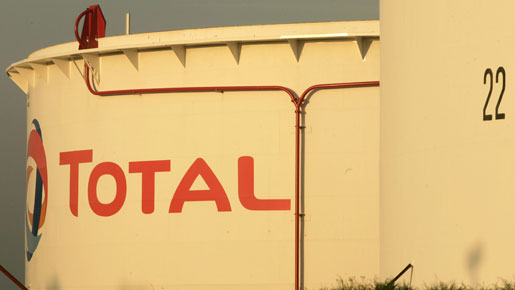
Across a 73-metre steel bridge, the Alwyn bravo platform, its blastwalls glistening in the Spring sunshine, processes 100,000 barrels equivalent of oil and gas a day.
Even though it is well past its peak, the North Sea accounts for 25 percent of Total’s production and the French oil major’s investment in the area is growing.
While common sense might suggest the biggest oil companies should concentrate on the biggest undeveloped fields, Total’s focus on the heavily tapped North Sea reflects a broader trend.
Twenty years ago, Western oil majors saw their future in Africa, Latin America and the Former Soviet Union (FSA), which political change and new technologies were opening to them.
However, a wave of resource nationalism, spurred by a surge in oil prices from $40/barrel in 2004 to over $147/barrel in 2008, undermined this strategy, and the oil majors are now more focused on opportunities closer to home.
“We are not afraid to be in places like Africa but in the OECD we have less political risk and more predictable tax,” said Patrice de Vivies, Total’s Northern Europe exploration boss, casting an eye north toward the wisps of smoke drifting from the flame towers of the platforms on the Brent field 30km away.
While companies still eye deals in the Middle East, Africa, Latin America and the FSU, there is a broad acceptance that attractive opportunities in these areas will be scarce.
Europe’s largest oil company by market value, Royal Dutch Shell Plc has said it plans to direct 60-70 percent of its investments into the industrialised countries of the OECD.
“We want a certain portion of investment in the OECD… because we think, long term, we have more political and fiscal stability there,” Shell Chief Executive Peter Voser told a press conference in March.
Previously, big projects in Russia and Nigeria meant the ratio of investment in OECD countries to non-OECD countries was lower, Chief Financial Officer Simon Henry added.
Broad pullback
Spanish oil major Repsol, which in 2006 had gas fields in Bolivia nationalised, has made rebalancing its portfolio toward the OECD a cornerstone of its strategy, prompting new ventures in the Gulf of Mexico, Alaska and Canada, a spokesman said.
Exxon Mobil, which pulled out of Venezuela due to the seizure of its assets there, and which said it would not put any more money into Russia until its rules on foreign investment became clearer, signalled its focus with a $27bn agreed bid for US gas producer XTO Energy in December.
Chevron said it expects its OECD production to rise.
This has contributed to muted bidding and unawarded licences at auctions in Venezuela and Algeria in the past four months.
Increased investment and production in the US and Europe supports the desire of political leaders there to boost security of energy supplies but, for the companies, the motivation is entirely economic.
“There’s little benefit in over-committing to resource-rich countries if the value proposition does not stack up to other options in your portfolio,” said Iain Brown, upstream vice-president at consultants Wood Mackenzie in Edinburgh.
The much-drilled OECD is attractive despite the fact that discovery sizes are typically smaller and costs higher.
Production costs in non-OECD countries are much lower but taxes and royalties are high and production sharing agreements often give the host government the lion’s share of profits.
Talisman Energy said last year that finding and development (F&D) costs were $34 per barrel of oil equivalent (boe) in North America and $39/boe in the North Sea.
By contrast, TNK-BP, the Russian oil producer, half-owned by London-based BP, said last year it had F&D costs of under $4/boe and analysts put F&D costs in Saudi Arabia at $1-2/boe.
But some non-OECD countries, including Saudi Arabia, reserve their oil fields for their state oil companies and the others demand tough terms – Russia levies taxes of 90 percent on profits above $30/barrel oil.
There are also costs attached to non-OECD political unrest: in Nigeria, civil violence has shut down a third of production.
The willingness of Western oil companies to forgo opportunities rather than agree to unprofitable fiscal demands has helped Chinese state-owned oil companies to expand.
Beijing has charged its companies with securing energy sources for China’s fast-growing economy and is not so concerned about high political risk and poor economic terms.
Technology helps
A five-minute helicopter ride south of Alwyn, in calm, Norwegian waters, a drilling rig, distinguishable from the crowded production platforms by its flat deck, dominated by a lone drilling derrick, sits above the Hild field.
Hild was found 30 years ago but only now, thanks to modern seismic surveys, can the complex structure be developed.
Indeed, new technology has underpinned the shift to OECD reserves.
New methods for freeing natural gas from low-permeability shale rock have led to a surge in US gas output, cutting US reliance on imports.
Exxon’s bid for XTO, a big player in shale gas, is about giving the world’s largest non-government controlled oil company by market value a leading position in shale gas.
Similarly, new ways to extract natural gas from coal seams has attracted billions of dollars of investment into Australia and led to the rare sight of onshore rigs drilling in Europe.
Better seismic techniques and platform design has facilitated more exploration in the deep water of the Gulf of Mexico – resulting in multi-billion barrel finds such as BP’s Tiber and Kaskida fields – and in the North Sea.
The oil majors’ retreat to the OECD is not unprecedented. When Saudi Arabia, Iraq, Kuwait and Iran threw them out in the 1970s, the companies regrouped in the North Sea and Alaska.
Similarly, analysts expect that, if non-OECD resource-holders start to offer more generous and numerous opportunities, Western oil executives will quickly return.
Nodding amidst the loud hum of the Alwyn rig’s gas processing machinery, Total’s de Vivies agrees.
“We are not trying to reduce our presence in non-OECD. It is simply that the OECD is where the opportunities are now.”

